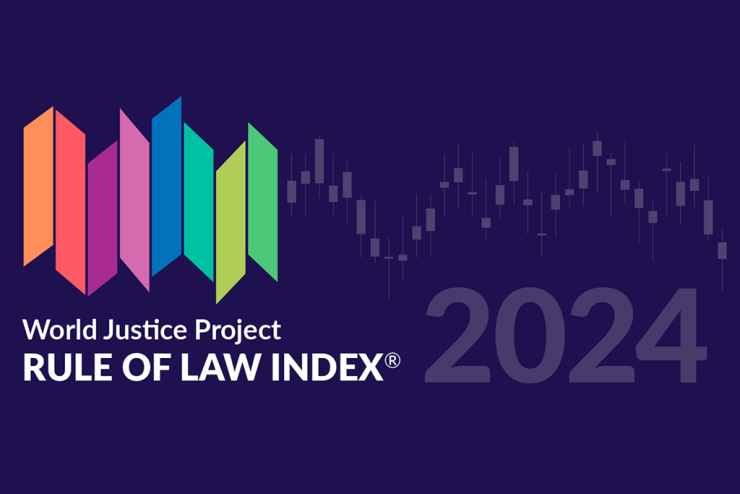The World Justice Project (WJP) Rule of Law Index 2024 reveals a continuing decline in the global rule of law for the seventh consecutive year, with 57% of surveyed countries showing deterioration. Despite this troubling trend, there are signs that the overall recession of the rule of law is slowing, suggesting potential opportunities for improvement. Notably, there has been a slight uptick in the number of countries reporting decreases in corruption, with 59% of countries indicating progress in anti-corruption measures for the first time in five years. Additionally, improvements have been seen in criminal justice systems, highlighting a shift towards more effective legal frameworks. While the overarching narrative of decline remains prominent, it is crucial to acknowledge these positive developments and the efforts to bolster justice systems worldwide.
However, authoritarian trends persist unabated, undermining both human rights and democratic governance. The Index notes significant declines in two vital areas: Fundamental Rights and Constraints on Government Powers, indicating a retreat in the protections afforded to citizens. Since 2016, 81% of countries have experienced a decrease in fundamental rights protections, and there are declines in governmental checks and balances across 77% of nations. Presently, over 6 billion people inhabit countries where the rule of law has weakened since 2016, raising alarming concerns regarding individual freedoms and the integrity of governmental institutions. These developments point to a broader consolidation of power among state leaders, which poses severe threats to accountability and electoral processes.
The year 2024 marks a critical juncture for democracies around the globe, as it coincides with numerous national elections that test the principles of lawful transition of power. Since the start of the global rule of law recession, there has been a noticeable decline in this subfactor, with 72% of countries showcasing weakened electoral processes. In an environment where ruling parties have frequently maintained power, those nations with lower rule of law scores have continued to show consistency in governance, often at the expense of democratic accountability. In contrast, countries with stronger rule of law performance have experienced more frequent changes in leadership, as demonstrated in recent elections in Brazil and Poland.
The WJP Rule of Law Index employs a rigorous methodology that assesses rule of law conditions across 142 countries, incorporating expert and public surveys that evaluate eight distinct factors. These factors encompass crucial elements such as civil justice, criminal justice, and absence of corruption, allowing for a comprehensive overview of the state of law worldwide. Denmark maintains its position as the top-ranked nation in the 2024 Index, a ranking unchanged from the previous year, while countries at the bottom of the list reflect significant challenges, including Venezuela, Cambodia, and Afghanistan. Countries like Myanmar and Nicaragua face alarming declines in rule of law, whereas others such as Poland and Sri Lanka demonstrate notable improvements.
Amidst this complex landscape of legal frameworks and political environments, the role of the international community becomes increasingly vital. The WJP emphasizes the need for collaborative efforts to expand progress in rule of law measures across all regions, particularly in the face of rising authoritarianism. As nations grapple with these challenges, the commitment to enhancing legal structures and safeguarding democratic principles will determine the resilience of individual rights and government accountability. Encouragingly, despite the overarching decline, the emerging improvements in combating corruption and bolstering criminal justice underscore the hard work and dedication of various stakeholders to foster a more just and equitable global society.
In conclusion, while 2024 presents significant trials for the rule of law globally, it also highlights opportunities for growth and reform within affected countries. The mixed results in the WJP Rule of Law Index illustrate both the challenges posed by authoritarianism and the potential pathways to recovery through improved governance and justice systems. Continued vigilance, advocacy, and collaborative international engagements will be required to ensure that the gains achieved in areas such as anti-corruption and criminal justice can be translated into broader advancements for rule of law, democratic freedoms, and the protection of fundamental rights for all citizens worldwide.














